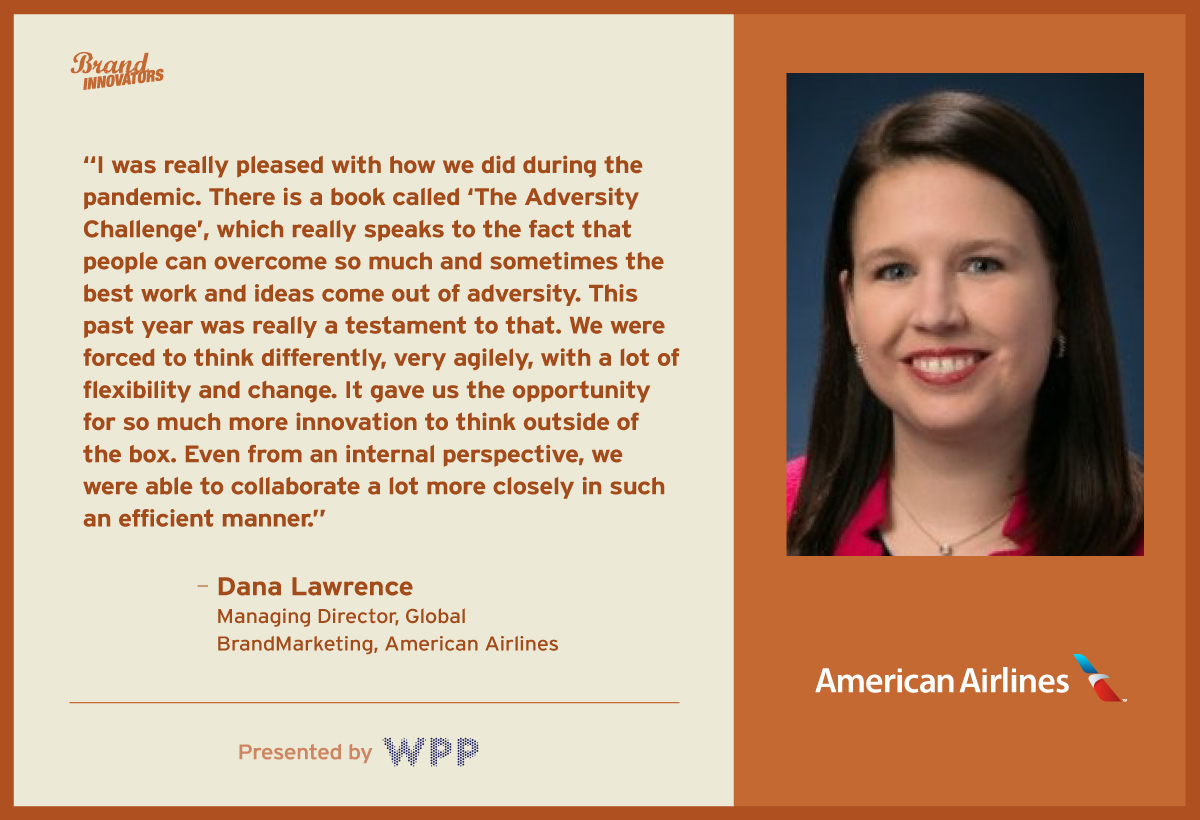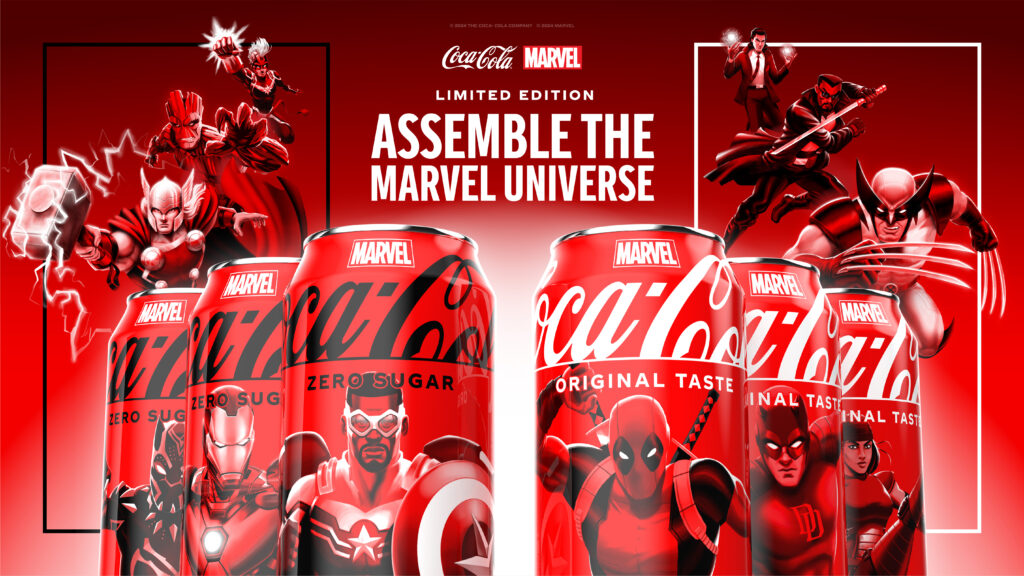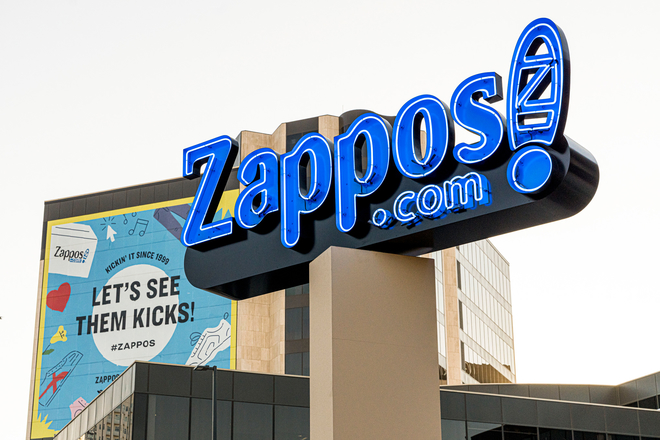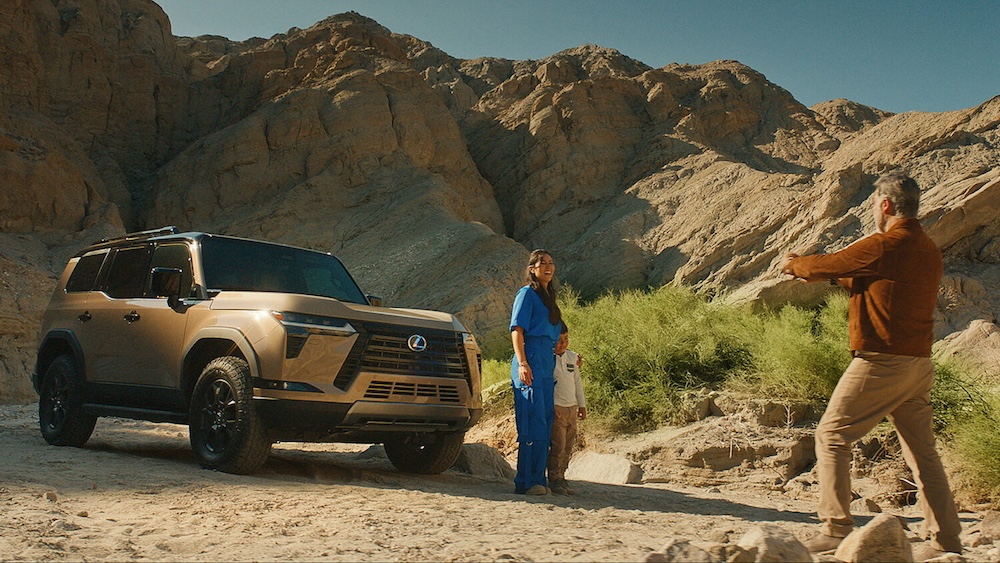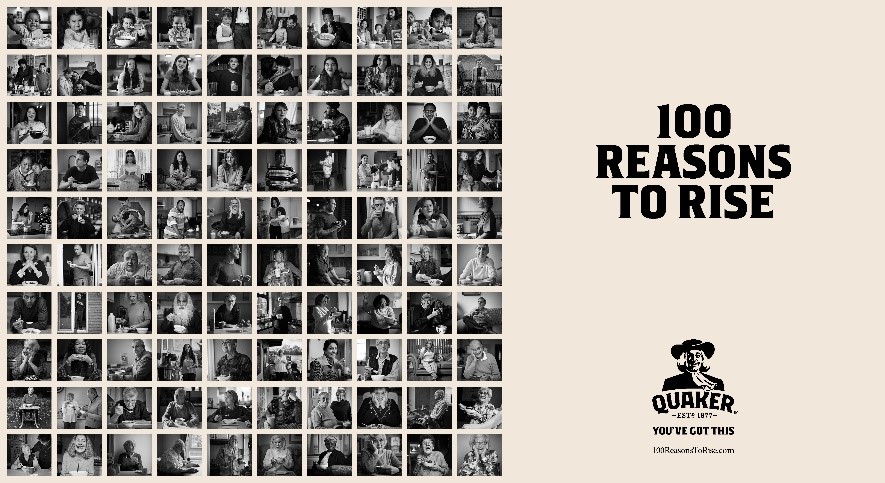Travel has been one of the industries hit hardest by the pandemic, and travel brands have been agile, creative and compassionate to adapt in this current era.
Global air travel has been down 60%, and the industry has seen $370 billion in losses since the pandemic began, according to the UN’s air transportation agency. American Airlines had to act quickly when the pandemic hit to ensure their policies supported the CDC rules and to make sure that people felt safe if and when they travelled. This included focusing on cleaning procedures, partnering on Purell and highlighting how HEPA filters help circulate the air on planes.
“I was really pleased with how we did during the pandemic,” said Dana Lawrence, Managing Director, Global Brand Marketing, American Airlines at Brand Innovators’ Future of Travel livecast. “There is a book called The Adversity Challenge which really speaks to the fact that people can overcome so much and sometimes the best work and ideas come out of adversity. This past year was really a testament to that. We were forced to think differently, very agilely, with a lot of flexibility and change. It gave us the opportunity for so much more innovation to think outside of the box. Even from an internal perspective, we were able to collaborate a lot more closely in such an efficient manner.”
The hotel industry is also struggling due to the decline in travel, and businesses have focused on cleaning procedures and safety protocols. As the pandemic hit, Hilton used their marketing platform to establish safety for travelers. Additionally, the group partnered with Lysol and The Mayo Clinic on a cleanliness program for all of their hotels around the world called “Clean Stay.”
“I think travel companies, much like all the other companies, have recognized that it’s no longer enough to be in business just doing what you do,” said Lou Dubois, Director of Editorial Content at Hilton. “You have to stand for something and talk about how you’re making the world a better place. All of that brings consumer trust and advocacy in ways that traditionally, just selling doesn’t. That’s where content has immense power to bring consumers into your lifecycle in ways that you maybe never thought about 5 or 10 years ago.”
The good news for hotel brands is that there is an end in sight to lockdowns, as vaccine programs are being rolled out around the globe. IHG is using this quiet period to update its branding. The company recently launched a rebrand with a new logo, a revamped website, and an updated name for its loyalty program.
“I’m excited and passionate about how our guests, members and the industry have reacted and embraced the way we’re coming to life in our new brand relaunch period,” said Liz Crisafi, Global Vice President, Campaign Marketing at IHG Hotels and Resorts. “We’re not just coming to market at a moment in time. It’s really going to be intrinsic in everything we do. We want to be very purposeful in how we’re bringing that message to life – across commercial campaigns, how our brands are stronger together, our loyalty program and the critical aspect of how our members engage with us. When it comes to loyalty, it’s not about us, it’s about our members. I’m excited to see how all of that will continue to evolve over the next several months and years to come.”
Marriott is using this time to look at data to see how they can improve guest experiences moving forward. Christine Kettmer, Senior Director, Global Enterprise Insight & Strategy at Marriott International said, “We’re really leaning into the perspective view of what is happening in the marketplace, the data, and what it’s telling us and representing that point of view. We’re focused on finding where those bright spots are – the things we can lean into – so that in the future, we can meet the guests where they are while driving loyalty and commitment to our brands in the long term.”
While the hotels and airlines were hit the hardest, the booking sites and loyalty credit card companies have also been impacted by the shift in consumer behavior. Travel is a big part of Visa’s business, for instance, which provides loyalty credit cards around the globe.
“We have a purpose that is grounded in Visa being the trusted engine of commerce and our approach is the belief that the economy includes everyone and uplifts everyone, everywhere,” said Steve Greig, Vice President, Global Marketing – Head of Travel, eCommerce and Core Product Marketing at Visa.
Visa operates in more than 200 countries and has more than 3.3 billion cards in people’s physical and digital wallets. “The network of Visa is huge and vast and that’s a massive benefit when it comes to travel,” Greig said. “It’s often taken for granted but the ability to travel around the world and pay seamlessly just makes travel a heck of a lot easier. Ultimately, we communicate to consumers around the world with advice on the best way for them to pay as a traveler around the world.”
For Expedia, one of the biggest challenges has been supporting travel partners during the pandemic so that they will survive until travel opens back up in full force. They also want to support those struggling in their industries with a relief fund. Additionally, they are trying to ensure that their advertising and marketing is meaningful and has the right tone during the global crisis.
“We believe travel is essential to everyone – businesses, economies, the world,” said Angelique Miller, Senior Director, Global Creative + Brand Partnerships at Expedia. “Tourism plays an incredibly critical role in invigorating economies and supporting that destination recovery. Whether it’s a pandemic or natural disaster, we know we have to react in these circumstances and quite quickly. ”
